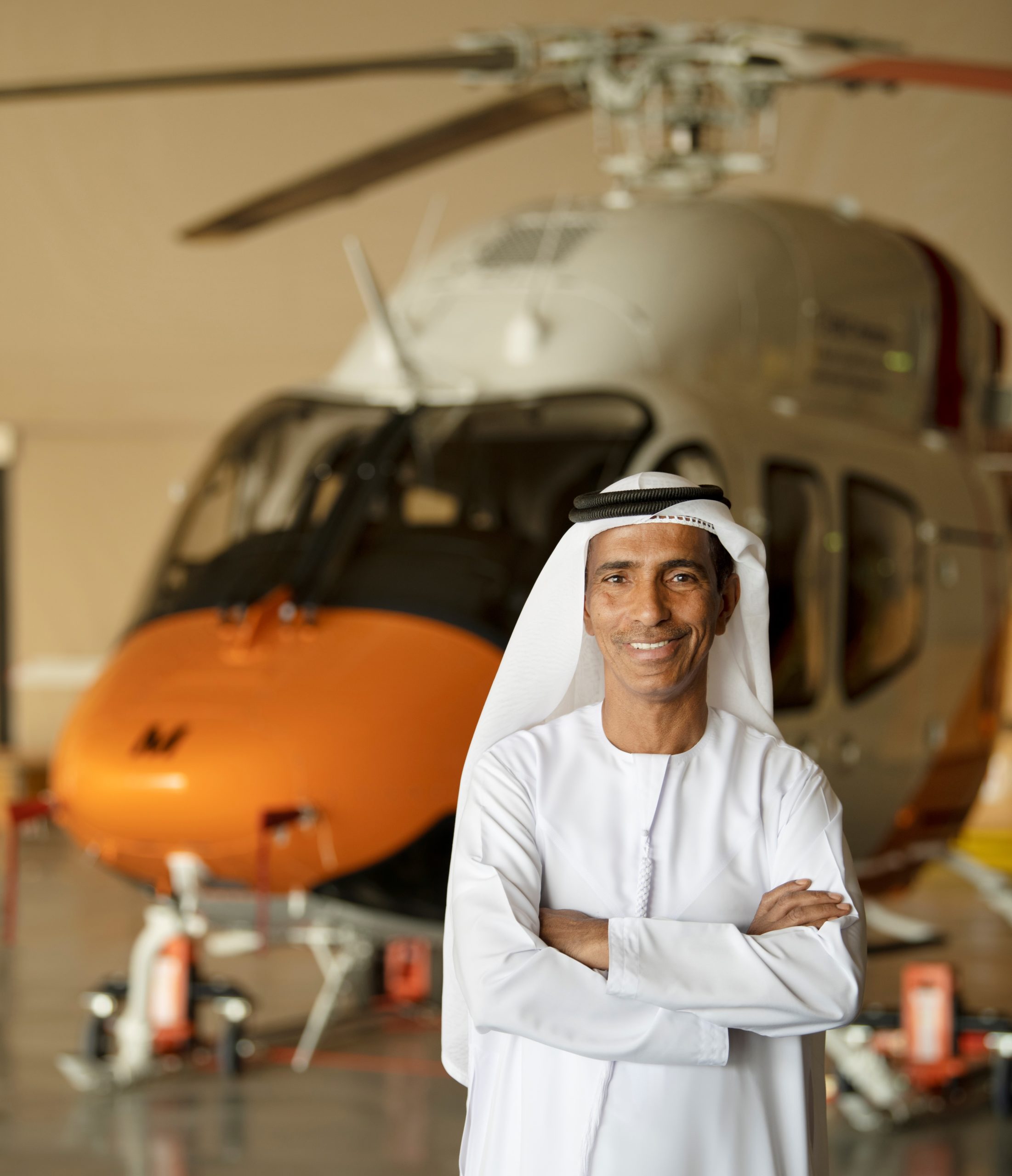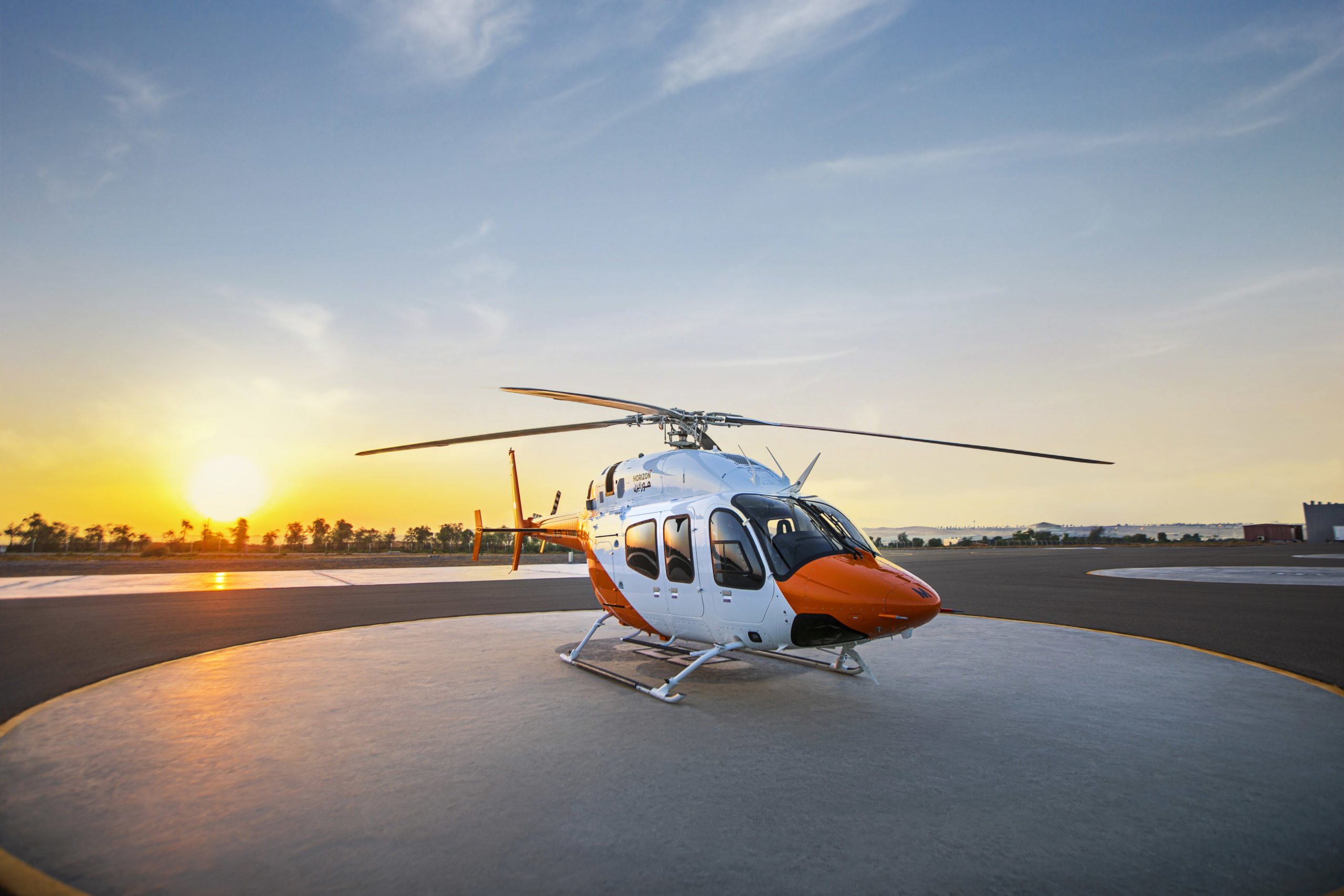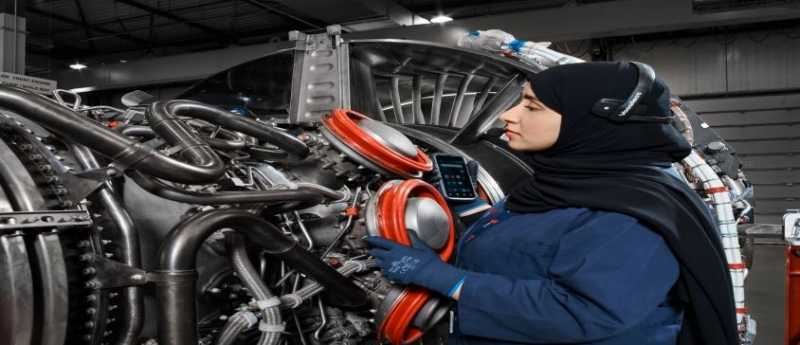
Horizon, one of world’s best helicopter flight training academies, has been educating and up-skilling rotary-wing pilots locally and internationally for over 20 years. In continuing to set the benchmark for pilot training worldwide by guiding tomorrow’s aviators and up-skilling today’s experienced pilots, Horizon is developing more advanced courses, expanding its twin-engine helicopter training programmes, and bringing the latest high-tech simulators. “Our goal is to continue delivering excellent rotary flight and aviation instruction to civilian, military and commercial operators for years to come. We hope to continue to grow and offer the aviation industry the next generations of excellent pilots,” said Hareb Al Dhaheri, Chief Executive Officer, Horizon. In an interview with Aeromag, he talks about Horizon’s latest operations and future plans.
- Horizon is one of the leading independent helicopter flight training academies in the world. What do you think of the future of rotary flight training? What are the challenges?
Advancements in flight technology have led to a boom in the aviation industry. With more helicopters in operation, there will be a greater need for fully-trained, qualified pilots. The future of rotary flight will rely on increased training opportunities within dedicated, advanced flight schools. Training programmes must adapt to changing demands and challenges, like requiring fewer student flight-time hours that do not always contribute to a more skilled pilot. These actions can reduce costs for students and create a streamlined road to pilot schooling.
Academies like Horizon that offer bespoke rotary-wing training courses will be crucial for the future. Flight schools must invest in the latest training technology, flight simulators and advanced courses within single and twin-engine helicopter training programmes.
- What are the major achievements of Horizon over these years? Where does Horizon stand globally as a helicopter flight academy?
For over 20 years, we have been educating and up-skilling rotary-wing pilots locally and internationally. Horizon is now the region’s largest helicopter flight training academy.
We have established state-of-the-art facilities in Al Ain, and offer industry standard and bespoke helicopter training to leading civilian, commercial and military operators from across the Middle East and North Africa. We have achieved the ability to offer a wide range of nationally and internationally recognised qualifications to our students.
Our training programmes are delivered to the highest standards of safety, quality and efficiency. As they comply with European Union Aviation Safety Agency (EASA) standards and have earned UAE General Civil Aviation Authority approval, we are very proud to be considered alongside other leading flight academies around the world.
- Is there an increasing demand / opportunity for rotary flight careers? What are major sectors where chopper pilots are needed?
There is absolutely an increasing demand for pilots and rising career opportunity. Pilots faced much difficulty as the outbreak of Covid-19 led to helicopters being grounded worldwide, but as we steadily resume operations around the globe, a pilot shortage is evident. This is good news for young pilots looking to enter the field.
We are seeing more and more industries use helicopters, which are known for their versatility, including medical, entertainment, utility and corporate. Pilots are always needed in the major sectors, meaning military, commercial and emergency response, but now young pilots have the unique opportunity to enter untapped industries.
- Horizon has been developing more advanced courses, expanding its twin-engine helicopter training programmes, and bringing the latest high-tech simulators. Could you talk more about this?
At Horizon, we are always looking for opportunities to expand and offer the most technologically advanced and comprehensive training tools and courses possible. Recently, two advanced courses were added to the training programmes which include our Search and Rescue course, as well as our Night Vision Goggle course. Our innovative training programmes will drive us to be on the leading-edge of tomorrow.
- How strong is your training fleet? What are the highlights of your training facilities?
With a choice of three of the latest Bell single- or twin-engine helicopters, as well as four different state-of-the-art simulators, Horizon students are coached with the most advanced rotary flight training technology available. Our fleet of Bell helicopters includes the Bell 429, 505 and the 407.
We also boast our simulator – it’s a two place, side-by-side seating cockpit with a complete instrument panel provided for visual and instrument training. The software provides over 24,000 airport programs and an accurate flight model including translational lift, ground effect, auto-rotation and other factors.
Otherwise, we have the benefit of a 5,000 square metre facility with state-of-the-art training aids and the best available resources. The training facilities are co-located within the Horizon campus area and the dispersal consists of nineteen helipads.

- How do you associate with leading commercial and defence operators?
We are proud to be partnered with Bell and utilise their helicopters for our training courses. We aim to leverage any partnerships toward extending our leading training capabilities.
- There are a diverse range of helicopter licenses now and each of them requires different kind of training. Could you elaborate on the diverse range of courses you offer?
Certainly. Our extensive selection of flight training courses is designed to cater to a range of students and skill levels – from novices to experienced military pilots. These courses give students an in-depth understanding of the operational procedures in rotary-wing aviation.
We also deliver theoretical and practical training to provide a fully rounded picture of the key areas, and even offer programmes on subjects that include flight and ground safety and accident investigation. This way, our student pilots are equipped with the knowledge they need for their operations. That could be anything from pilot English language proficiency or aviation safety procedures up to a Qualified Military Pilot Bridge course.
- What are the main aims of Horizon in the years ahead?
Our goal is to continue delivering excellent rotary flight and aviation instruction to civilian, military and commercial operators for years to come. We hope to continue to grow and offer the aviation industry the next generations of excellent pilots.






